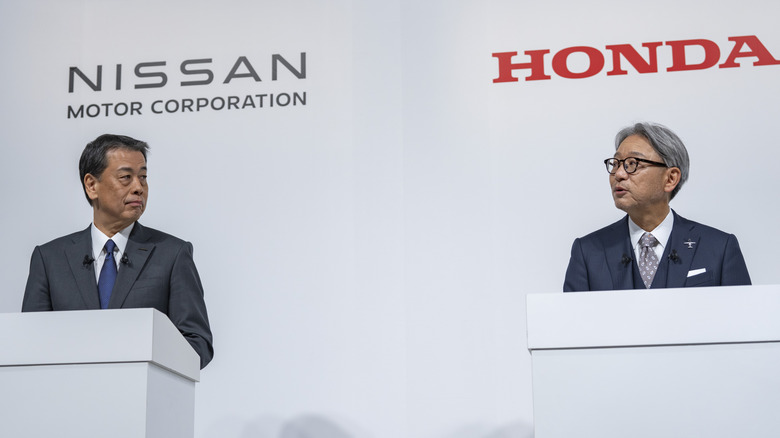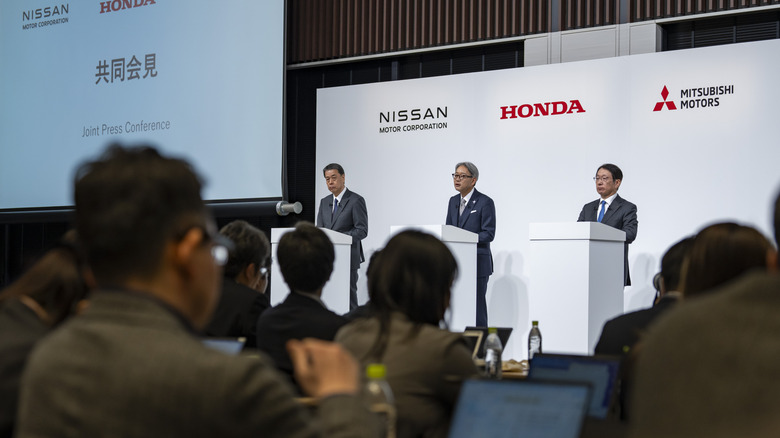Honda And Nissan Confirm Merger Talks: What It Could Mean For Your Next Car
An industry as big as the automotive sector always has money and manpower shifting around, whether in acquisitions or mergers. However, some mergers still manage to surprise us due to the sheer scale of their potential impact on the industry at large. The latest of these gargantuan mergers to hit the scene is the newly-confirmed potential merger between Japanese automotive giants Honda and Nissan.
In a press release this morning, both companies have announced that they've formally agreed to merger talks. In addition to Honda and Nissan, Mitsubishi, which already has a strategic relationship with Nissan, will be joining in on the proceedings. Should these brands reach an agreement and unite into a single automotive brand, we could be looking at the rise of the third-largest automotive superpower in the entire world.
To clarify, an actual merger has not been agreed upon just yet. Rather, the companies have agreed to a memorandum of understanding (MOU), which basically means they've agreed to formally begin the talks to hammer out the finer points of a potential deal. This means you won't see any tangible changes to Honda or Nissan vehicles right this second. After the talks conclude in six months or sooner, though, then we might start seeing something interesting.
Merging massive automotive brands could lead to an optimized automaking process
The million-dollar question (possibly literally) is how a merger between Honda and Nissan would affect the automotive industry at large and, more importantly, how it would affect you, the consumer. Both brands have quite a few irons in the fire, and if they were to combine their efforts, we could see those irons yield new developments in a much shorter, more affordable order.
For one thing, Nissan has been tinkering with EV batteries since last year. The brand has been trying to perfect its new solid-state battery, which would ditch liquid from their composition and overall improve their ability to store and deliver power. As of yet, this pursuit hasn't quite yielded fruit, but if Nissan had Honda and its resources in its corner, it could seriously expedite the process. A breakthrough in EV tech would be mutually beneficial for both brands, as both Honda and Nissan have been somewhat slow to get on the EV bandwagon in general, and Honda's offerings like the Prologue haven't exactly blown people away.
With both EVs and traditional cars, a merging and optimization of manufacturing resources means cheaper, faster car development and production. Ideally, the savings from this would be passed onto consumers, which means your next car from Nissan, Honda, or whatever they decide to call the merged brand, could be more affordable than previous years. If they manage a battery breakthrough and begin delivering a cheaper EV, it could be a big step forward for global EV adoption.
For the time being, it's still business as usual, but we may see a major shakeup in the industry by the middle or later part of 2025.

